As the seminars in 2005 were a big success, we will again hold seminars this year.
The seminars list is now finally final :)








As the seminars in 2005 were a big success, we will again hold seminars this year.
The seminars list is now finally final :)

|
Jonathan P. Story / intel
"Parallel Physics" Jonathan Story is an Application Engineer working within the Consumer Software Enabling team at Intel GmbH in Munich. The main focus of his work is supporting game developers in Europe. With around ten years of experience in the games industry Jonathan has a wealth of programming knowledge in the fields of 3D, optimization and multi-threading. Jon has previously worked at Codemasters and Silicon Dreams Studio. This session will describe why multi-threading is becoming a very important part of game engine design, with the most important first steps towards success outlined. A live demo of a fun physics game will be shown, and a mini case study of how the multi-threading speed up was achieved. |

|
Sebastian 'shiva' Marketsmüller
"Medical Imaging - A Demoscener's Perspective" shiva started his democareer eleven years ago. Back then a member of ethos9 and nowadays a frequent involved coder for black maiden and kolor. Highlights so far include the void series, petit prince and fresnel. Since three years he is working as a medical imaging specialist coder for Rendoscopy AG. shiva will give a quick introduction to medical imaging coding. He'll explain the differences between things that are radically different to coding a demo, like accuracy and documentation and the ones that are quite similar like fast hand optimized code. Followed by a few technical details on various medical imaging techniques that may be familar to demo coders like marching cubes and raycasting. |
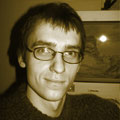
|
Tom 'tomkh' Dobrowolski / Plastic
"Real-time Voronoi Fractals and Procedural Creatures" Tom started developing software in 1990 at the age of 9. His most popular projects include voxel world generator for the Ken Silverman's Voxlap Engine Demo, and MoonEdit: the first multi-platform collaborative text editor. Tom's interests include artificial world generation, experimental games, code optimization, and user interfaces. His first demoscene production was a 64k intro Suboceanic at Assembly 2005. Recently, he joined Plastic, the award-winning group known for making breath-taking cinematic quality demos. Tom will talk about his novel procedural generation techniques, such as his real-time rock rendering algorithm, and the procedural creatures he used in Suboceanic. He will also show off some of the tools he developed to produce these effects. |
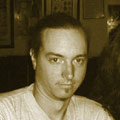
|
Clemens 'peci' Pecinovsky / scoopex
"Getting rid of the Win32 exe header" Peci started his demo-scene career on C64 and Amiga, although he first joined the scene in 1993 on PC. He studied computer science on the Technical University of Vienna and works since 2003 in the computer games industry as a programmer. Nowadays he is specialised in shader programming and size optimized programming for 4k intros. Ever wanted to get rid of the Win32 EXE header? Ever wanted to get another 1000-1500 bytes in your 4k? Ever wanted to get rid of the temporary file and execute the 4k directly? I will present a method on how to use a bug in windows to get a win32 callback from a .com file. This presentation requires advanced knowledge of programming in Win32 assembly language as well as 16bit assembly language used in .COM files. The presentation will start with the story how I found out how to do it, continued by a detailed description of the implementation. Then I will talk about the drawbacks and things you have to worry about and last but not least I will show some applications including 256 byte intros doing Win32 calls. |

|
Dierk 'chaos' Ohlerich / farbrausch
"Coding User Interfaces from Scratch" Chaos is one of the best known and highest rated coders in the demoscene. Back in the days as a member of Sanity he did not only do never-forgotten demos on the Amiga, he also invented new techniques like the rotozoomer. He continued his work on the PC and supplied important parts for some of the best known demos and intros of the scene and set new standards with demotools like .werkkzeug. In his day job he works as a game developer at 49 Games. Tools pretty much revolutionised intro development, but user interface programming is known to be ugly and time consuming. So how did Farbrausch tackle that problem? By writing thier own GUI system from scratch. This seminar explains how to get a simple user interface library running and how to extend it to become really useful. Besides that, it gives an insight how the werkkzeugs were created and what challenges lie ahead of us. |
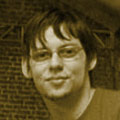
|
Fabian 'ryg' Giesen / farbrausch
"Working with compression" ryg became active in the scene around 1998, when he started working on the OpenCP music player project. After releasing on several intros and demos on various german parties, he joined farbrausch in 2000, and has been involved one way or the other in nearly all of their releases since. He's also known for his work on kkrunchy - which is by now one of the best executable packers for 64k intros - and kkapture, a non-realtime video capture application designed to make high-quality videos of demos. In real life, he's a CS student at the University of Bonn. Writing 64k and 4k intros long ago stopped being purely about size optimizing your code to the max - nowadays, most 64ks are written in a high-level language, and current packers can fit a lot more into 4k or 64k than was possible a few years ago. That doesn't mean doing intros has become considerably easier, though; people's expectations have grown accordingly. And while most people probably won't write their own compression code, knowing how to store your data in a way that makes it compress well can make a difference on the order of several kilobytes. This two-part seminar will teach you how, giving you both a short introduction on data compression, to give you a feel for what compresses well and what doesn't, and detailed material on how to store your data in a way that maximizes compression efficiency. |
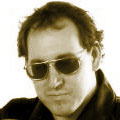
|
Tobias 'bitbreaker' Bindhammer / Metalvotze
"C64 Workshop part I: Coding" In 1988 bitbreaker started coding on a Commodore C16. Soon the C64 became also an interesting plattform, where he finally found his way into the demoscene by joining the group Climax Industries in 1990. Some years later he made his first tries as graphican. In 1994 after many groups were dying away or got inactive he eventually joined the group Metalvotze. In his workshop he will give an introduction to the 6510 microprocessor of the Commodore64. After some basics he will produce some lines of code together with the audience. The aim is to get a working scroller effect that is triggered by raster interrupts. Thus an introduction to 6502 and some basic VIC registers are given in an playful way. Note: This is part I of our C64 Workshops. See also part II, our only graphics seminar this year. |
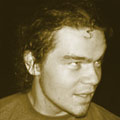
|
Leonard 'paniq' Ritter / farbrausch
"An Introduction to Linux Audio" Paniq has been tracking for about eight years now and has created over 150 pieces of electronic music in that timespan. He also coded tools to improve his music, exploring new techniques. He works as a coder and GUI designer. When it comes to advanced audio composition and mastering, Linux does in no way stand behind commercial operating systems. How to cut and master audio on Linux? How well does it play with external audio gear? Which applications are available? Why is Linux one of the best platforms when it comes to realtime audio processing? And what is yet missing? This seminar will do its best to answer all these questions, vivid and comprehensible. |
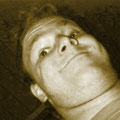
|
Mads 'nutman' Perschke / IRIS
"Introduction to FL Studio" After making music on the Amiga for four years, nutman joined IRIS in 1995, where he contributed to several major releases. Nowadays, he mostly works on PC, but still supports Amiga productions whenever possible. Over the years, he's used all kinds of sound tools but ended up using Fruityloops, now known as FL Studio. His taste in music spreads from death metal over Jean Micheal Jarre to Scooter. He currently works as a Software Test Specialist at IBM Denmark. Introducing FL Studio (formerly known as Fruity Loops) - a complete software studio package. You will learn how to create patterns, use sound generators (VSTi and built-in), combine patterns, use automation, use the piano roll, use effects (VST) and such - This seminar is mostly useful for beginners, but advanced users are welcome aswell. Please note that I will NOT be discussing music theory, as I know nothing about that - I just compose what I like. :) |
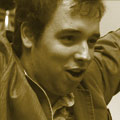
|
Egbert 'skrebbel' Teeselink / matt current & progress
"Happy Hardcore Crash Course for Coders" Starting his demoscene career on fasttracker in 1997, skrebbel quickly gained fame throughout Dalfsen, his home village. Years later, he still visits parties but his earlier discovery of the rest of the world made him lose most musical inspiration. Demoscenewise, he is mostly involved with quick partyhacks and party organising. Ever visited a party without an entry? Ever had this great fundemo but no music? Or, even worse, ever had this great idea for a tune but no l33t sk1llz to make it happen? Then this seminar is for you! In a few simple steps you will learn how to produce an excellently enjoyable piece of happy hardcore, a widely appreciated genre with no steep learning curve. No need to be able to perfectly master a tracker, though some idea about what one looks like might help. |
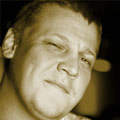
|
Maik Borchardt / Ventuz
"Using real time rendering for large-scale interactive presentations" Maik is Maya and real time artist @ one of Germany s most renowned postproduction agencies, Second Unit Services in Munich. The company is implementing real time presentations for some of the world s most potential clients. Panasonic, Avid, Samsung, Fujitsu Siemens, Adidas and Microsoft are just a few of their clients. Maik will give an outlook to the future of real time rendered presentations. Focusing on content integration, exchange, and interactivity he will introduce latest DirectX and .NET Features. He will also introduce Ventuz, one of the most innovative .NET real time renderers on the market. |
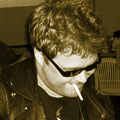
|
Daniel 'DeeKay' Kottmair / Crest
"C64 Workshop part II: Graphics" DeeKay started seriously making c64-Graphics in 1991 after seeing the legendary c64-Demo Dutch Breeze and Crest's Avantgarde. After a one-year stint with an unknown group he joined Crest, his favourite group which he will never leave. Under the Crest label he has produced many demos in close cooperation with Crossbow/Crest (Coder), he has also worked with Graham/Oxyron (Coder) on several occasions. He always enjoys cooperation with other groups though, having worked with HCL/Booze Design, Krill/Plush, Metalvotze and others. The most noteworthy productions he worked in are Deus Ex Machina, Krestology, Risen from Oblivion (C128 Demo) and One-der. He enjoys doing Logos most, but is known to do the occasional picture, too. In this workshop you will get an introduction to what kind of graphics the Commodore 64 can display and how they are structured. You will learn about the basic standard graphic modes and their restrictions, we will also briefly touch some of the advanced ones that can be achieved through various programming tricks. This seminar is highly recommended for interested coders as well as graphicians. Coders will learn about the structure and how advanced graphics modes are done and graphicians can learn some tricks on how to make the best of the limitations and how to use the standard 16 colors properly. Bonus-Feature: Making C64-Graphics on PC/Mac with Photoshop and other tools. Anyone who wants to try it out for themselves may do so afterwards in a hands-on-session where we will also answer any questions. Note: This is part II of our C64 Workshops. See also part I, one of the coding seminars. |